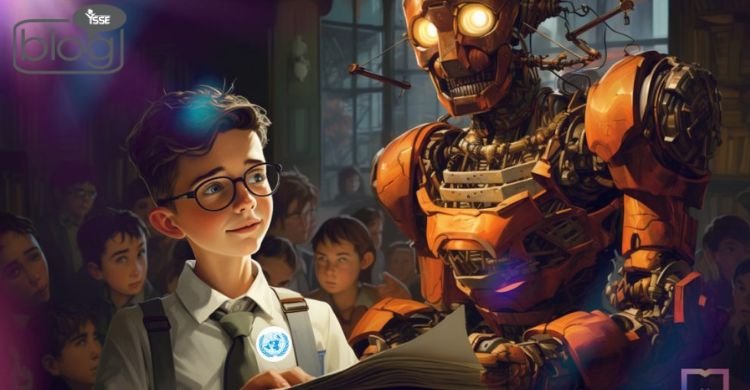Artificial intelligence is a machine’s capacity to conduct the cognitive processes we usually associate with human intellect. The UN Educational, Scientific and Cultural Organization (UNESCO) regulates the use of Generative Artificial Intelligence (GenAI) in education and research, including age limits for users.
The agency is also calling for barriers to data security and user privacy.
Publicly available GenAI tools, such as ChatGPT, can produce automated text, images, videos, music, and software code. The platforms have developed rapidly and are already by hundreds of millions around the world, comprising many students.
However, very few countries have in place to ensure the safe and ethical use of AI tools.
“It cannot be integrated into education without public engagement, and the necessary safeguards and regulations from governments. The UNESCO Guidance will help policymakers and teachers best navigate the prospect of AI for the primary interest of learners.”
UNESCO’s suggestion, the first stab at creating a global standard, suggests immediate steps that can be taken to ensure a human-centric vision for new technology use.
This includes mandating the safety of data privacy and contemplating an age limit of 13 for their use in the classroom. It also outlines requirements for GenAI providers for moral and effective use. The guidance stresses the need for educational institutions to validate AI systems for student use.
The agency said that using AI programs rather than teachers could affect children’s emotions, putting them at risk of being easily exploited. The UNESCO guide states that AI tools have the prospect of helping children as research deputies, but these tools will only be safe and effective if the governments regulate their use and conform with teachers, students, and researchers, to participate in the tool’s design technique. AI is changing the world and facilitating everyday life. Human work in all fields is remarkably reduced thanks to AI applications.
However, there are more and more warnings about the dangers of AI. This technology is said to be sparking a new, difficult, and complicated battle between cybersecurity forces and cybercriminals. Children are the inheritors of the opportunities brought by AI but also the most vulnerable to the dangers of this disruptive technology.
As AI becomes more popular globally, with volatile acquisitions in 2023, lawmakers around the world have urgently considered how to reduce the risks that this emerging technology carries to national security.
In November, the British Government will host a Global Summit on AI Safety, which will focus on discussing how to stave off AI from being used to sprinkle false and fake news in elections and The use of this technology in warfare.
In May, heads of the Group of leading industrialised countries (G7) called for the application of global criteria, to develop AI technology safely and reliably.
Microsoft Corporation President Brad Smith recently declared that AI has the potential to become a useful tool but also has the risk of becoming a weapon against humanity if it goes beyond human control. Brad Smith asserted that it is necessary to encourage technology companies to “do the right thing”, including creating new regulations and policies, to ensure safety in all situations.
We all know that Using AI is an irreversible direction in the world. The development of techniques, and AI truly serves human life and it’s an essential step to making preparations for the next life safely with artificial intelligence.
To read more blogs, click here.
Writer
Morsheda Begum
Intern, Content Writing Department
YSSE

